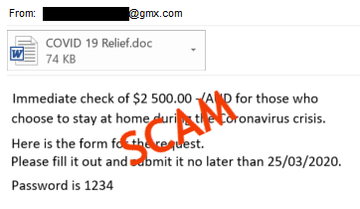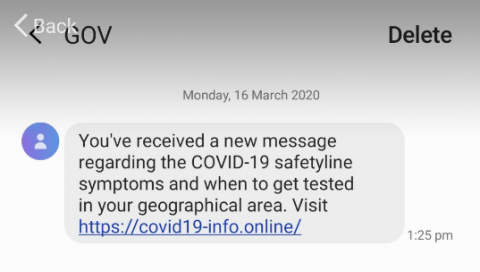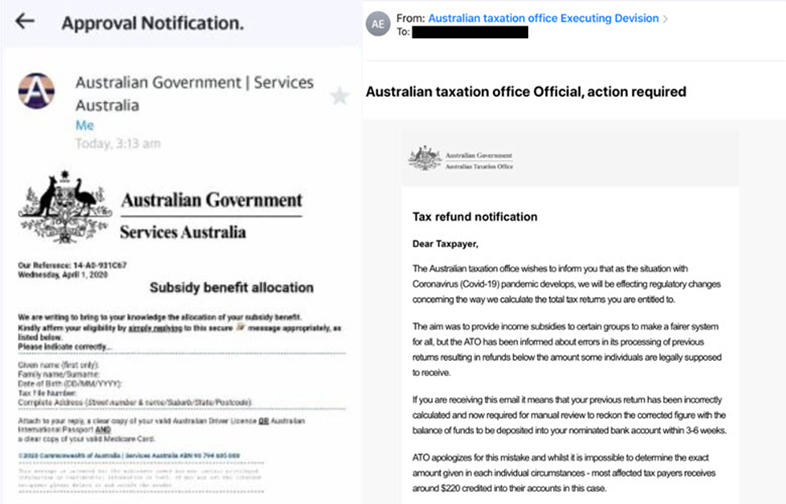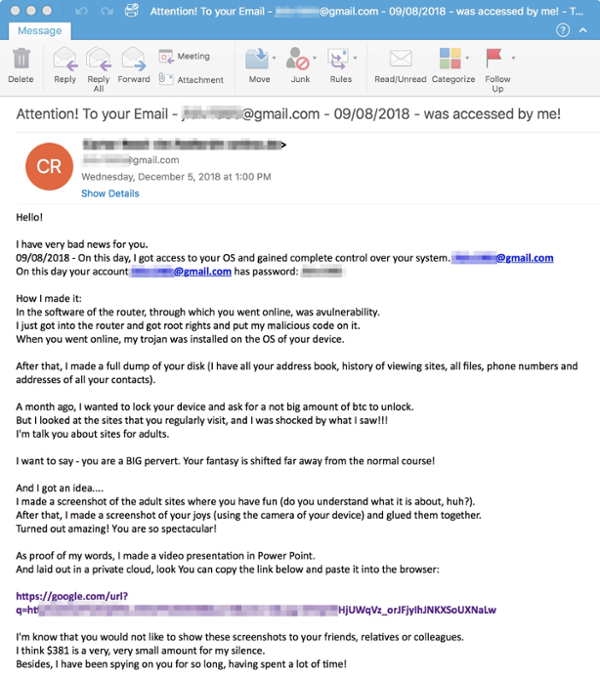Unfortunately whenever there is a crisis or large media event, scammers see an opportunity to target people who may already be afraid or unsure. It’s an unfortunate truth and means we need to be extra vigilant with the ongoing COVID-19 crisis.
Below are some scams and examples we have seen circulating, this is by no means an exhaustive list but will give you a better understanding of the types of scams and how scammers are targeting people.
COVID-19 Email Scam
 |
| Email scam circulating |
There are emails circulating with malicious attachments claiming that the recipient is eligible for a ‘working from home payment’, these are scam emails trying to get you to download malicious software
COVID-19 SMS Scam
There has been reports of different SMS scams circulating in Australia that are pretending to be from the Government and trying to get you to click malicious links and give out your personal and financial details.
 |
| SMS scam circulating |
Scammers targeting early access Super scheme
Scammers are targeting Australians financially impacted by the COVID-19 crisis, cold calling people claiming to be from organisations that can help you get early access to your superannuation.
These scams are following from the Government’s announcement about early access superannuation. The ATO is coordinating the early release of super through myGov, there is no need to involve a third party or pay a fee to access this scheme.
Government impersonation scams
 |
| Fake Government emails circulating |
Scammers are pretending to be government agencies providing information on COVID-19 through text messages and emails ‘phishing’ for your information. These contain malicious links and attachments designed to steal your personal and financial information.
Scammers are also pretending to be Government agencies and other entities offering to help you with applications for financial assistance or payments for staying home.
 |
| Example of an 'sextortion' scam email |
Sextortion scams
Most scams seem to always come back around and we're seeing more sextortion scams popping up with people working from home and using their own devices.
Sextortion is a word made by combining ‘sex’ and ‘extortion’ and is used by the IT industry to describe a type of blackmail or ransom, usually received via email.
The email usually scares the user by claiming that they have somehow managed to infect their computer and have records of them visiting adult sites and videos of them.
Social engineering
You’ve probably heard the term social engineering used alongside words such as hacking, scams or phishing, but what does social engineering actually mean?
In simple terms, social engineering is the act if manipulating, influencing or deceiving someone in order to get them to do something. In terms of technology, this means trying to manipulate someone into completing an action that will give the attacker access to your details or install something on your computer.
With the majority of people working from home, staff are now missing those organic interactions and are not having conversations on the common scams going around. This can lead to people becoming complacent and not on the lookout for malicious emails.






Let Us Know What You Thought about this Post.
Put your Comment Below.